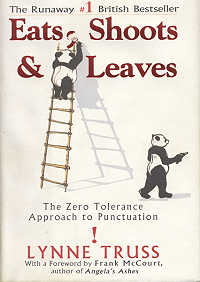I recently screened for a clinical trial in which the consent form indicated that the product might make me feel “fizzy.” I knew it meant to say dizzy, but I continue to enjoy the thought of how delightful it must be to feel fizzy! Of course, I pointed out the typographical terror error to the study coordinator because I’m that person. You know. The one who corrects everyone’s grammar and typos.
As much as this typo filled me with joy, I could’nt couldn’t help wondering: how did this get approved?
We all make typos. Even me. I tend to leave words out when I am thinking faster [than] my fingers can type. I assume that the fizzy consent went through at least a review or too two on its way to the IRB. I also assume that this study was reviewed by a convened IRB, given that it was an investigation of an off-label use of an FDA-regulated product. Shirley Surely, I can’t be the only person who noticed this error?
We don’t usually think of the emerging treat threat of typos and bad grammar as a human subjects tissue issue, but here’s why we should.
Understandability
 Typos, grammatical errors, spelling mistakes, and misplaced or misused punctuation can interfere with understandability. For instance, my favorite grammar book (yes, I have a favorite grammar book), Eats, Shoots & Leaves[1], demonstrates how a misplaced comma changes the meaning of a benign observation of a panda’s preference for foliage to a ridiculous scenario of a gun-toting panda making a hasty exit.
Typos, grammatical errors, spelling mistakes, and misplaced or misused punctuation can interfere with understandability. For instance, my favorite grammar book (yes, I have a favorite grammar book), Eats, Shoots & Leaves[1], demonstrates how a misplaced comma changes the meaning of a benign observation of a panda’s preference for foliage to a ridiculous scenario of a gun-toting panda making a hasty exit.
The general requirements of informed consent under the 2018 Common Rule demand that the “information that is given to the subject or the legally authorized representative shall be in language understandable to the subject or the legally authorized representative,” [2][§46.116(a)(3)]. Poor grammar, misspellings, and inappropriate word choice can interfere with readers’ comprehension, even when the Flesch-Kincaid (FK) reading level is below 8th grade. (And don’t get me started on IRBs’ over-reliance on readability statistics!)
Take the following paragraph as an example:
We are asking you to take apart a research study. This stud is designated to learn if people who have. Cats are better-looking that people who have dogs. We are also trying to asses whether the number of cats or dogs makes you how good-looking. If you joint this study, we will ask your pets and about how good-looking you are. The results of this study are unlikely to benefit you directly, but it may help us learn how to make people better-looking, which could benefit you and the people in your commune. This is a risk that you may learn that you are not as good-looking as you thought you are. Its your’re choice to be this research study or not. Your choice too take part or not will not affect your ability two adopt cats or dogs in the future.
The FK grade level is 6.4, but easy mistakes like spelling and typing errors, missing words, wrong words, and grammar and punctuation mistakes make an otherwise simple paragraph difficult to read and understand.
Credibility
Aside from concerns about understandability, these issues make the investigator, the institution, and others look bad. I will confess that—despite my delight at the prospect of feeling fizzy—I wondered how closely the reviewing IRBs had reviewed the consent materials, and whether the materials had been reviewed in their entirety.
Undermining the credibility of research and the research enterprise could lead to differential enrollment in research in ways that interfere with equitable selection of subjects[2][§46.111(a)(3)].
Responsibility
I do not believe it is the IRB’s responsibility to proofread or edit consent materials. Rather, it is my position that the IRB has a role in identifying whether such issues exist and in requesting that investigators engage a technical writer or editor for proofreading and revision before approving consent materials. Depending on the organizational structure of the HRPP, proofreading could also be incorporated into one or more steps of the review and triage process prior to IRB review.
Conclusion
The emerging treat threat to asses assess feeling fizzy dizzy reminds us of the importance of proofreading in the context of human research protections.
Just for Fun
- How many mistakes did you find in the example paragraph?
- What is your favorite typo that you have encountered?
 Laura Youngblood, MPH, CIP, is a Human Research Protection Professional at the Centers for Disease Control and Prevention.* In her spare time, she enjoys identifying errors and ambiguous language on roadside advertising billboards. She once stayed at a hotel offering free wireless breakfast pets.
Laura Youngblood, MPH, CIP, is a Human Research Protection Professional at the Centers for Disease Control and Prevention.* In her spare time, she enjoys identifying errors and ambiguous language on roadside advertising billboards. She once stayed at a hotel offering free wireless breakfast pets.
*The opinions expressed in this blog are those of Ms. Youngblood and do not necessarily reflect the official position of the US Centers for Disease Control and Prevention.
Guest contributors are valued members of our community willing to share their insights. The views expressed in their posts do not necessarily reflect those of PRIM&R or its employees.
[1]Lynne Truss, Eats, Shoots & Leaves: the Zero Tolerance Approach to Punctuation, Gotham Books, 2003
[2] Title 45 Code of Federal Regulations Part 46, Basic HHS Policy for Protection of Human Resource Subjects, 82 Fed Reg 7259-73. 2017.


My “favorite” typos:
If your child has been diagnosed with sickle cell disease, they may have a greater risk of side effects. (So if they have sickle cell, and have not yet been diagnosed, they side effects won’t be as great?)
After taking the study drug for 6 weeks, your doctor will ask you to come to the clinic for some tests to see how you are doing. (Why is my doctor taking the study drug?)
Principle Investigator… yup. I can’t tell you how many hours of my life were spent proofreading ICFs in my job as an IRB administrator, and wishing that the sponsor/study team had done the work upstream, before submitting to us… Although I sometimes wonder if they even know how bad it is!
I, too, am feeling fizzy after reading this blog. Thanks for the laughs along with the serious message underlying them.
YES! One of my many daily hats is “editor”! A technical writing course I took as an elective over 40 years ago in college has proven to be one of the most valuable courses I’ve taken.
I have a long list of typos and errors in consent and other documents. It was collected over the course of a few years from a team of IRB staff. Some favorites:
This ferally funded study . . .
There is no new research which renders this study useless
Death was not noticed in anyone who chose to continue in the study.
Visual fiend testing
You may already have tenderness in your area.
My collaborators and I have dilligently prepared a thoughtful and detailed study. It is the first if its kind at this institution.
The landscape of genomics data has remained a dark and quiet place.
These are fantastic! I want to be in a ferally funded study!
These is best Blog which will help more and Appreciation of you
Interesting post, I learned something new today. Thanks for sharing your knowledge
Clinical research courses
https://clinicalinsights2.blogspot.com/
https://clinicalinsights.wordpress.com/
https://clinicalinsidise.tumblr.com/
Now add to the mix the ‘English as a second language’ subset of patients who will be struggling with these forms AND helpful AI and auto-correct programs and we have a real disaster in the making. I am filling out a slew of consent forms in preparation for seeing a new group of doctors. I know the doctors have no input on writing the forms so …. who do I complain, consent, suggest to? I’ve been trying to find a job as a proofreader to help the poor overworked folks who have to compose this pile of paper, but apparently you have to have a PhD in …. something to be a proofreader. Thanks for all the grins.